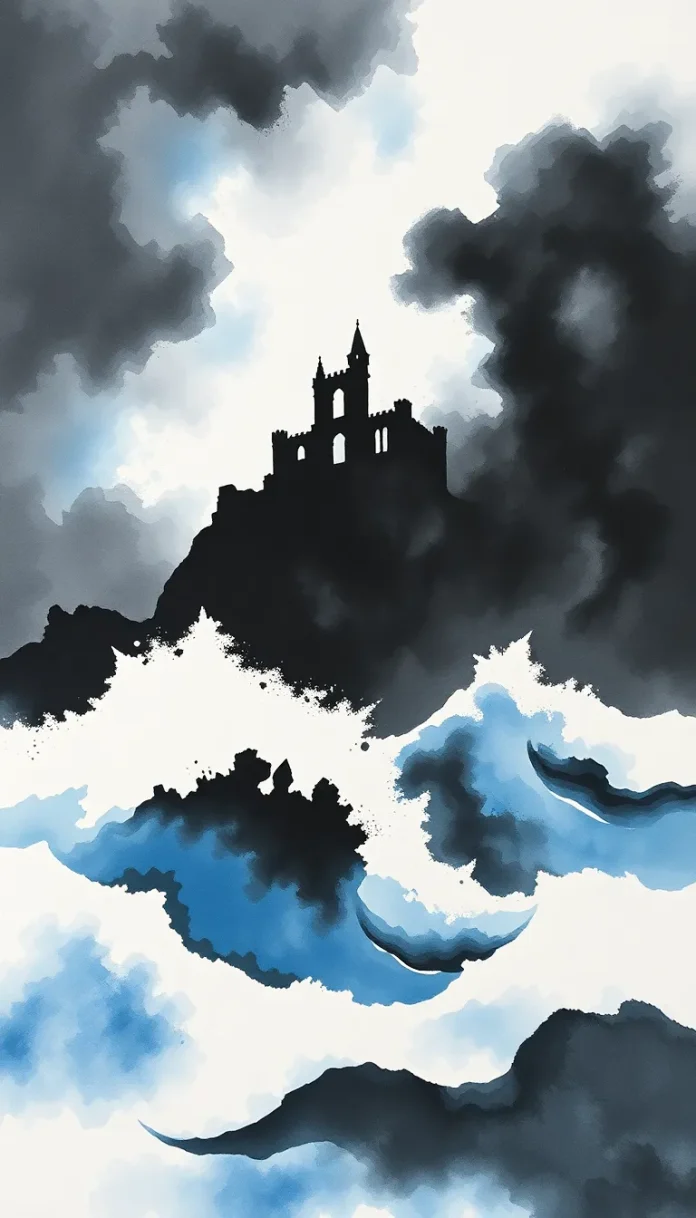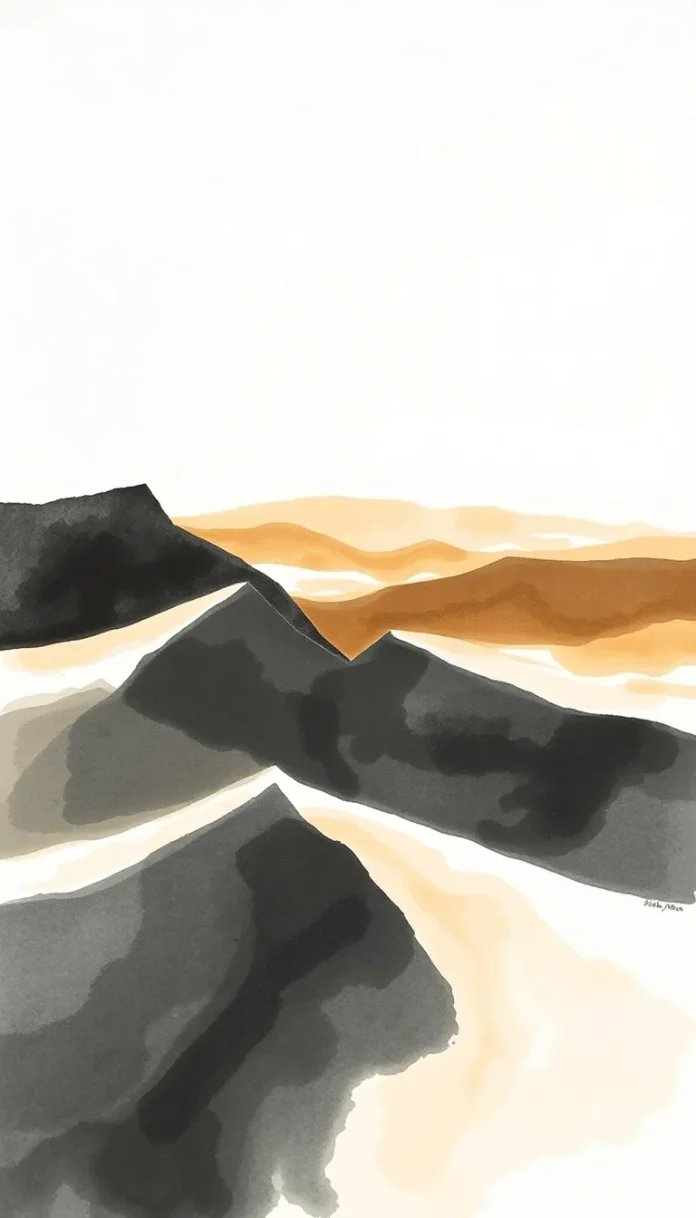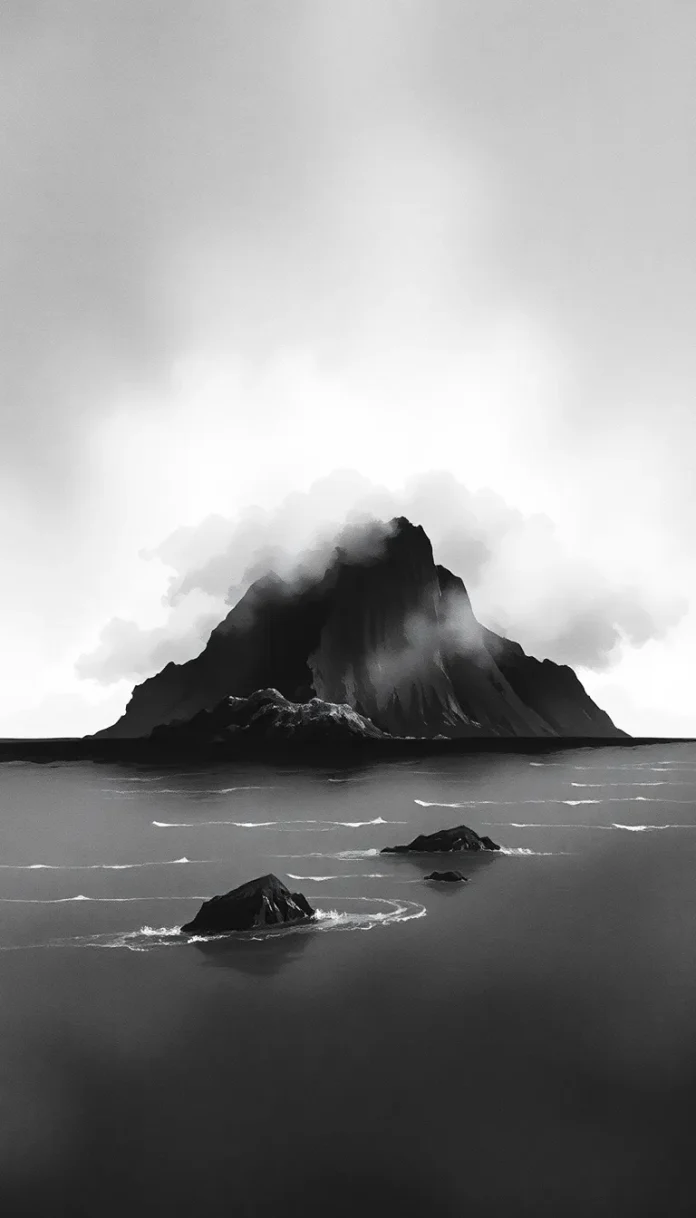The Soldier’s Secret Garden
Beneath the ashen moon, where shadows weep,
A weary soul returns, his vigil steeped
In mem’ries clawed by war’s unyielding hand—
A soldier trudges through his native land.
The iron gate, once gilt with morning’s kiss,
Now creaks with rust, a skeletal abyss.
He steps inside, where lilacs once entwined,
But finds a grave of thorns left unconfined.
Here, time had spun its gold in days of yore:
The lark’s sweet aria, dusk’s enamored lore,
A maiden’s laugh that danced among the vines—
Now choked by silence, where no sun inclines.
Her name, a breath half-lost to bitter air,
Still lingers where she wove her flaxen hair
Around his heart, now scarred by cannon’s roar,
A relic frayed, yet aching to restore.
He kneels, as if the earth might hear his plea,
And digs with hands still trembling, raw and free
From trenches’ grip. A locket, tarnished, cold,
Emerges—proof of love’s unbroken mold.
Her face, though dimmed, still gleams with April’s grace,
A phantom warmth he longs to clasp in place.
But lo! The wind conspires, a thief unseen,
And steals her image to the vast ravine.
“Return,” he whispers to the vacant grove,
“Oh, give me back the life I used to love!”
The garden, deaf, exhales a hollow sigh,
Its petals shriveled under vacant sky.
A flash of battle blinds his waking sight—
His comrade’s fall, the shrapnel’s lurid bite,
The crimson tide that drowned a brother’s cry—
And here, the thorns grow sharper, poised to pry.
He stumbles past the fountain, dry and cracked,
Where Cupid’s smile lies maimed, its arrows hacked.
The marble nymphs, once blithe in stone repose,
Now bear the weight of moss like shrouded woes.
A swing, unmoored, sways ghostly in the breeze,
Its ropes half-slain, as frayed as his beliefs.
He grasps the seat where joy had soared, unbound,
But splinters pierce his palm—no solace found.
“Why bloomed the roses redder here?” he grieves,
“When every petal now but mourns and cleaves?”
A voice, like roots that stir beneath the clay,
Resounds: “The earth drinks deeper than the day.
You seek a springtime sealed by winter’s claim—
Each blossom here is kindled by your flame.
Yet fire, once spent, leaves ashes in its wake;
The garden bears what hearts dare not retake.”
He turns, but naught remains save spectral mist,
The counsel of the soil’s grim fatalist.
The sundial’s shadow, sharp as sorrow’s blade,
Marks hours lost, a debt that will not fade.
He plucks a withered stem, its stem once grand,
And feels the war pulse hot within his hand—
A grenade’s echo, thunder’s lurid psalm—
The stem disintegrates to bitter balm.
“Then let me join the dust,” he dares implore,
“Where she and peace reside forevermore.”
The garden, veiled in night’s unending cowl,
Consumes his plea with neither smirk nor scowl.
A pistol’s weight—once foe, now truest friend—
Finds home against his temple, where an end
May bloom as swift as poppies in the fray…
But distant chimes deter: the clocktower’s bray.
Twelve tolls, like judges’ gavels, seal his fate.
He drops the steel, too late, yet far too late.
For in the echoes, marching drums resound,
And phantom troops encircle hallowed ground.
“Advance!” they roar, though none but shadows tread;
His mind, a battleground where hope lies dead.
He charges through the roses, swordless, torn—
A warrior sans war, forlorn, forsworn.
The dawn, a traitor, bleeds through fractured trees,
Exposing wounds no bandage can appease.
He collapses where her footsteps once had twined,
A requiem of whispers left behind.
The garden, steadfast in its grim repose,
Absorbs his tears, yet never softens those
Which etch his soul—each salt-drop, sharp as lead,
Until the man is naught, the ghost instead.
And when the villagers at last intrude,
They find no corpse, no trace of interlude—
Just petals, crisped, that spiral through the air,
And thorns that clutch a locket, tarnished, bare.
The sundial’s message, weathered, yet precise:
“No past revives where beauty pays its price.”
Thus ends the tale, though brambles still conspire
To guard the garden’s unextinguished fire.
A weary soul returns, his vigil steeped
In mem’ries clawed by war’s unyielding hand—
A soldier trudges through his native land.
The iron gate, once gilt with morning’s kiss,
Now creaks with rust, a skeletal abyss.
He steps inside, where lilacs once entwined,
But finds a grave of thorns left unconfined.
Here, time had spun its gold in days of yore:
The lark’s sweet aria, dusk’s enamored lore,
A maiden’s laugh that danced among the vines—
Now choked by silence, where no sun inclines.
Her name, a breath half-lost to bitter air,
Still lingers where she wove her flaxen hair
Around his heart, now scarred by cannon’s roar,
A relic frayed, yet aching to restore.
He kneels, as if the earth might hear his plea,
And digs with hands still trembling, raw and free
From trenches’ grip. A locket, tarnished, cold,
Emerges—proof of love’s unbroken mold.
Her face, though dimmed, still gleams with April’s grace,
A phantom warmth he longs to clasp in place.
But lo! The wind conspires, a thief unseen,
And steals her image to the vast ravine.
“Return,” he whispers to the vacant grove,
“Oh, give me back the life I used to love!”
The garden, deaf, exhales a hollow sigh,
Its petals shriveled under vacant sky.
A flash of battle blinds his waking sight—
His comrade’s fall, the shrapnel’s lurid bite,
The crimson tide that drowned a brother’s cry—
And here, the thorns grow sharper, poised to pry.
He stumbles past the fountain, dry and cracked,
Where Cupid’s smile lies maimed, its arrows hacked.
The marble nymphs, once blithe in stone repose,
Now bear the weight of moss like shrouded woes.
A swing, unmoored, sways ghostly in the breeze,
Its ropes half-slain, as frayed as his beliefs.
He grasps the seat where joy had soared, unbound,
But splinters pierce his palm—no solace found.
“Why bloomed the roses redder here?” he grieves,
“When every petal now but mourns and cleaves?”
A voice, like roots that stir beneath the clay,
Resounds: “The earth drinks deeper than the day.
You seek a springtime sealed by winter’s claim—
Each blossom here is kindled by your flame.
Yet fire, once spent, leaves ashes in its wake;
The garden bears what hearts dare not retake.”
He turns, but naught remains save spectral mist,
The counsel of the soil’s grim fatalist.
The sundial’s shadow, sharp as sorrow’s blade,
Marks hours lost, a debt that will not fade.
He plucks a withered stem, its stem once grand,
And feels the war pulse hot within his hand—
A grenade’s echo, thunder’s lurid psalm—
The stem disintegrates to bitter balm.
“Then let me join the dust,” he dares implore,
“Where she and peace reside forevermore.”
The garden, veiled in night’s unending cowl,
Consumes his plea with neither smirk nor scowl.
A pistol’s weight—once foe, now truest friend—
Finds home against his temple, where an end
May bloom as swift as poppies in the fray…
But distant chimes deter: the clocktower’s bray.
Twelve tolls, like judges’ gavels, seal his fate.
He drops the steel, too late, yet far too late.
For in the echoes, marching drums resound,
And phantom troops encircle hallowed ground.
“Advance!” they roar, though none but shadows tread;
His mind, a battleground where hope lies dead.
He charges through the roses, swordless, torn—
A warrior sans war, forlorn, forsworn.
The dawn, a traitor, bleeds through fractured trees,
Exposing wounds no bandage can appease.
He collapses where her footsteps once had twined,
A requiem of whispers left behind.
The garden, steadfast in its grim repose,
Absorbs his tears, yet never softens those
Which etch his soul—each salt-drop, sharp as lead,
Until the man is naught, the ghost instead.
And when the villagers at last intrude,
They find no corpse, no trace of interlude—
Just petals, crisped, that spiral through the air,
And thorns that clutch a locket, tarnished, bare.
The sundial’s message, weathered, yet precise:
“No past revives where beauty pays its price.”
Thus ends the tale, though brambles still conspire
To guard the garden’s unextinguished fire.
“`


